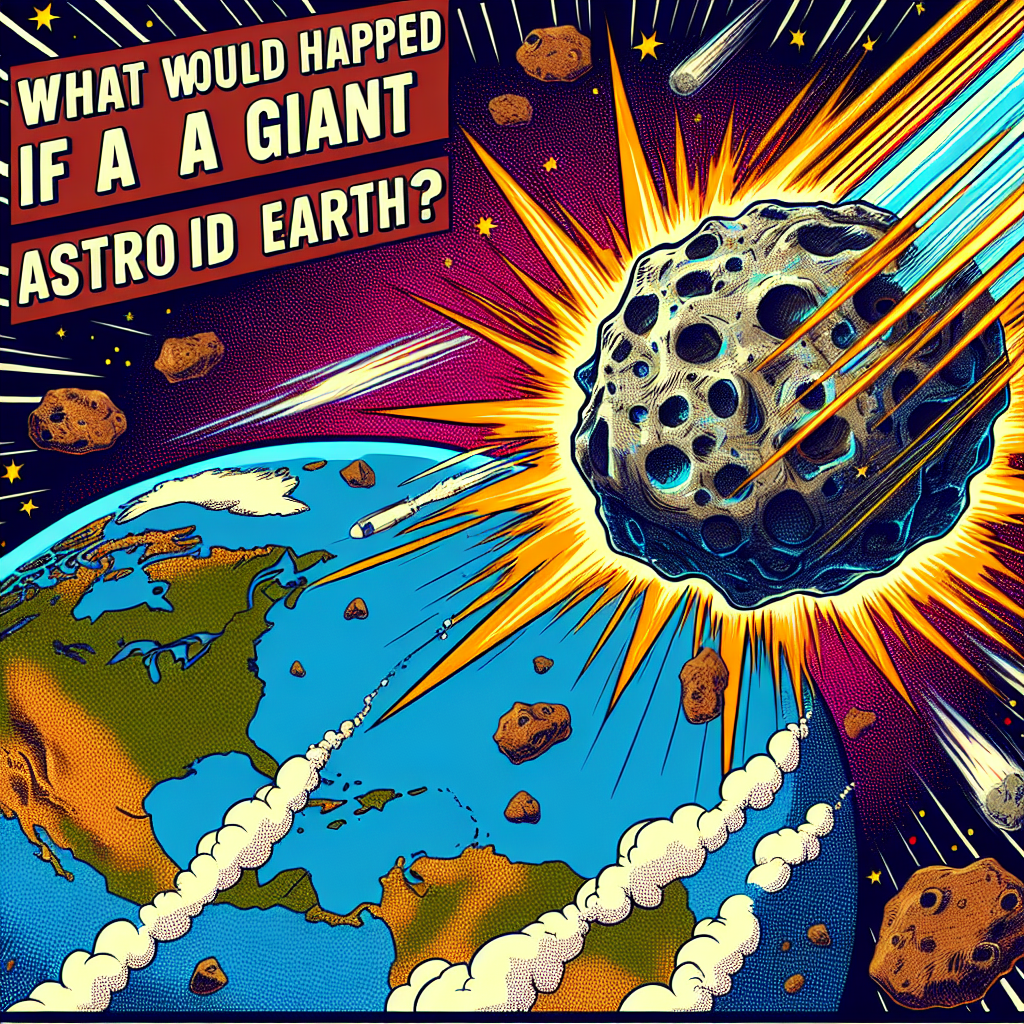Imagine a massive truck, about 10 miles in diameter, traveling at speeds of up to 20,000 miles per hour. That's roughly the size and speed of a giant asteroid that could potentially hit Earth. The impact would release an enormous amount of energy, equivalent to millions of nuclear bombs detonating simultaneously.
The force of the impact would create a crater roughly 100 miles in diameter and 10 miles deep. The crater would be formed in a matter of seconds, with the asteroid penetrating the Earth's crust and displacing massive amounts of rock and debris. The shockwave generated by the impact would travel through the Earth's interior, causing massive earthquakes and volcanic eruptions.
The impact would also throw up an enormous amount of dust and debris into the atmosphere, blocking out sunlight and affecting the Earth's climate. This would lead to a prolonged period of cold and darkness, making it difficult for plants to photosynthesize and affecting the entire food chain. The environment would be similar to a prolonged nuclear winter, with the sun blocked by the massive amount of debris in the atmosphere.
The immediate effects of the impact would be devastating, with massive tsunamis triggered by the displacement of ocean water, and firestorms ignited by the heat generated by the impact. The blast wave would flatten everything within a radius of hundreds of miles, including cities, forests, and entire ecosystems.
The impact would also release massive amounts of toxic gases, including sulfur and carbon dioxide, into the atmosphere. These gases would combine with water vapor to form acid rain, further devastating the environment and any surviving life forms.
One of the most significant effects of the impact would be the massive firestorms that would engulf the planet. These firestorms would be fueled by the massive amount of combustible material, including forests, cities, and fossil fuels. The firestorms would release massive amounts of soot and carbon dioxide into the atmosphere, further exacerbating the cooling effect and making the environment even more hostile.
The impact would also have a significant effect on the Earth's rotation and axis. The massive amount of energy released by the impact would cause the Earth's rotation to slow down, leading to longer days and nights. The impact could also cause the Earth's axis to shift, leading to extreme climate fluctuations and making the environment even more hostile.
Another significant effect of the impact would be the massive amount of cosmic debris that would be thrown into orbit around the Earth. This debris would include rocks, metals, and other space junk that would remain in orbit for centuries, posing a significant threat to any surviving spacecraft or satellites.
In the aftermath of the impact, the environment would be extremely hostile, with temperatures fluctuating wildly, and the atmosphere being toxic and devoid of oxygen. The survival of any life forms would be extremely challenging, and it's possible that the impact could even lead to a mass extinction event, wiping out a significant portion of the planet's biodiversity.
The impact would also have a significant effect on the Earth's magnetic field, which could be weakened or even reversed by the massive amount of energy released. This would have a significant impact on the planet's climate and the navigation systems that rely on the magnetic field.
In the long term, the impact would lead to a prolonged period of recovery, with the environment slowly recovering from the devastating effects of the asteroid impact. The ecosystem would need to adapt to the new environment, and it's possible that new species would emerge to fill the niches left by the extinct species.
It's worth noting that the likelihood of a giant asteroid impact is extremely low, but it's essential to be prepared for such an event. Astronomers and scientists around the world are working together to identify and track near-Earth objects, including asteroids, and develop strategies for deflecting or destroying them if they pose a threat to our planet.

Popular Space Questions
Find answers to the trending space questions being asked by our community on social media.
- How many galaxies are there in the universe?
- How far is Pluto from Earth?
- How many planets are in the Milky Way?
- What would happen if a rogue planet entered our solar system?
- How many planets are in our solar system?
- How big is the Earth?
- What are the planets in order?
- What if we found a way to manipulate gravity?
- What would happen if a pulsar's beam hit Earth?
- How big is the universe?